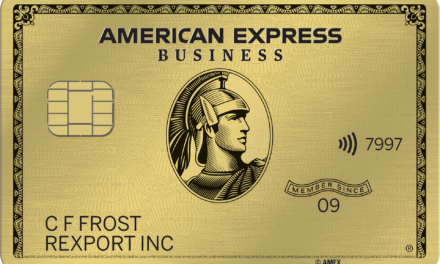The slogan “what’s in your wallet?” is a hallmark of many Capital One commercials. It’s also a great question that suggests you take a credit card inventory. This post gives you my answer that question.
Efficiency is key for me to play my cards right. I want to get as much out of my cards as possible without having any redundant benefits, bonus categories, or annual fees. Therefore, I have six cards instead of at least 20 like many other travel bloggers have. I tend to look for positive expected value from perks or big returns on spend when getting a new card. Sign-up bonuses are nice too, but they are not a top reason for me to get a new card.
Chase
I have written in length about my Chase Quartet, the four Chase UR-earning cards that I use for most of my everyday expenses.
Sapphire Reserve
Shortly after publishing the previous iteration of this post, I upgraded my Chase Sapphire Preferred to the Reserve. I am thrilled that I upgraded because the Reserve is the better card of the pair for my wallet.
The Chase Sapphire Reserve earns 3x UR points on Travel and Dining. It has a $450 annual fee (NOT waived the first year) and it serves as my liaison for transferring points to Chase’s partners. Plus, I have access to the Chase Travel Portal, which provides me with a guaranteed 1.5 CPP in value towards general travel.
Furthermore, the Sapphire Reserve comes with its famous $300 General Travel Credit, giving me a “net annual fee” of $150. It also comes with a plethora of travel insurances, including primary car rental insurance and trip cancellation insurance. It also comes with Priority Pass airport lounge access, which includes restaurants.
Freedom Unlimited
The Chase Freedom Unlimited resides in the top slot of my wallet for good reason. All my non-bonus category spend goes onto it because it earns 1.5x UR points on all purchases with no limitations. Plus, the Freedom Unlimited has no annual fee, giving me no reason to cancel it.
Freedom
The classic Chase Freedom earns 5x UR points on quarterly rotating categories. How often I use this card depends on what the categories are for a given quarter. But regardless of the category, this card is a keeper because it has no annual fee.
Currently, the categories are Department Stores, Chase Pay, and Pay Pal purchases. My only complaint about this card is that Chase announces the new quarter’s categories two weeks before the previous quarter ends. This makes it hard to predict if (or how much) I will use it ahead of time.
Ink Business Cash
The Chase Ink Business Cash earns 5x UR points at Office Supply Stores, as well as for Cell Phone, Landline, Internet, and Cable TV Services. It also earns 2x points at Gas Stations and on Dining. But I use the Sapphire Reserve for the latter category.
I mostly use this card to pay my phone bill and at the Costco gas station where I earn 2x points. These two expenses alone make this card worth it for me. I earn thousands of UR points every month just from these two expenses.
Plus, the Ink Business Cash has no annual fee, giving it a place in my wallet forever.
American Express & Discover
This section lumps together my non-Chase cards because I only have one from each issuer.
American Express Blue Cash Everyday Card
The Blue Cash Everyday is one of the weaker Amex cards for travelers because it has no benefits and earns cash back. It serves as my primary grocery store card, where it earns 3% cash back. Plus, it earns 2% cash back at Department Stores and (non-Costco) Gas Stations.
In fact, have debated to myself whether I should cancel this card. But it is one of my older accounts and it has no annual fee. Therefore, I have no incentive to cancel it.
Discover It
The Discover It is a cash back card that earns 5% on quarterly rotating categories. Currently, the categories are purchases from Target, Walmart.com, and Amazon.com. Moreover, this card has no annual fee and is also my oldest active card. That is why it has a permanent spot in my credit card inventory.
What I love about Discover is the plethora of redemption options they offer. Amex only limits you to a statement credit or gift cards. But with Discover, you can redeem rewards as cash into a bank account, a statement credit, a gift card, or even donate it to charity.
Cancellations
In September, I cancelled my American Express Business Platinum Card because I was not using the benefits enough to justify its nearly $600 annual fee. Plus, keeping it around was not worth two posts of frustrations. Even though my retention call was tough, I managed to get the card cancelled and save $595.
I still have the physical card because American Express does not give you a way to destroy a metal card. On the other hand, Chase mails you an envelope so you can send your cancelled or expired card back to them for recycling. Amex is developing a card recycling program in early 2020. But the program is primarily for plastic cards. I wish they would create another part of the program dedicated to metal cards.
Cards I’m Considering in the Future
I’m grateful and lucky to have six cards that earn me points or cash back for everyday expenses. But I might get some more in the future that will give me travel perks or help diversify my earning.
Six months ago, I wrote about the Chase World of Hyatt Card being the only card on my wish list. I love this card’s perks, free night, and high multiplier at Hyatt hotels. But I have not stayed at enough Hyatt hotels often enough to warrant getting the card. Plus, the two-part sign-up bonus is very expensive. $6,000 minimum spend for 50,000 Hyatt points is a lot for me.
Another hotel card that looks nice is the Amex Hilton Surpass Card. This card comes with Hilton Gold Elite Status, which includes free breakfast and room upgrades. It also comes with excellent bonus categories and one of the most balanced sign-up bonuses in the industry. I can earn 125,000 points for spending $2,000 within the first three months.
Final Draw
If anyone asks me “what’s in your wallet?”, I would tell them “not Capital One” and then tell them about this post. My mentality is one of efficiency – less is more. I want everything in my credit card inventory to serve a long-term purpose whether its perks, great return on spend, or acting as a foundation for my credit history.
Also remember that your mileage may vary. My strategy might not work for your travel wants or needs. But this is what works for me. I see nothing wrong with different strategies if they work for you.
Apply Today:
- Chase Sapphire Reserve
- Chase Freedom Unlimited
- Chase Freedom
- Chase Ink Business Cash
- American Express Blue Cash Everyday
- Discover It




